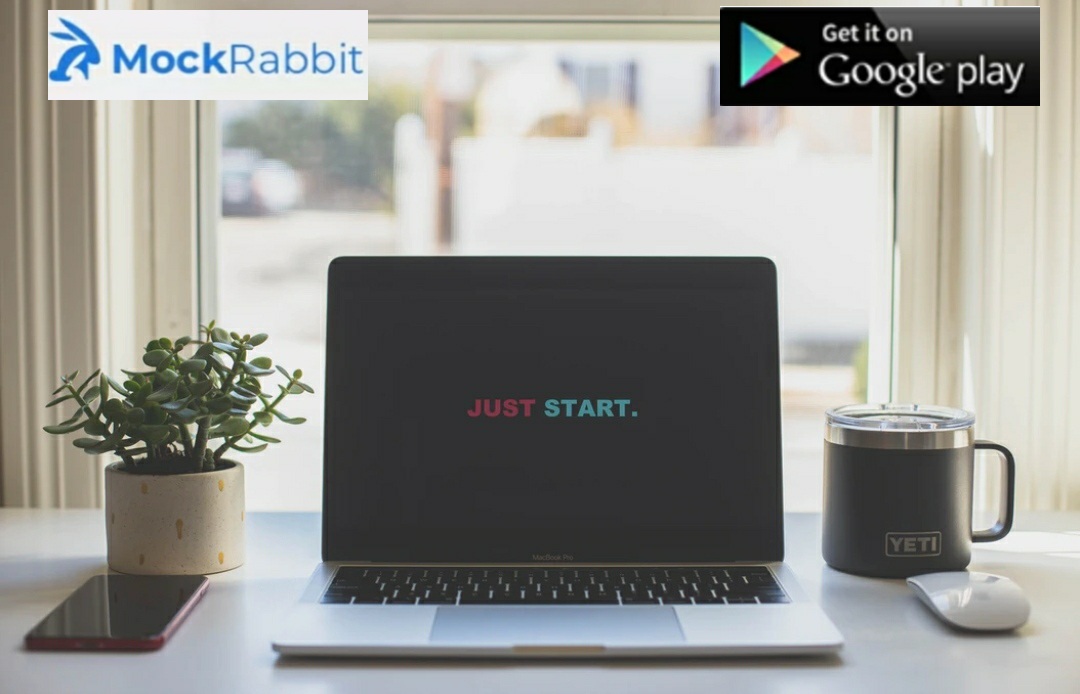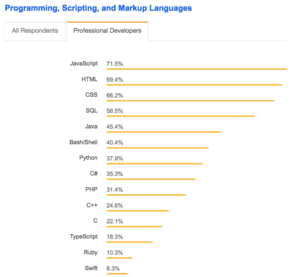The Ultimate Guide to Coding Interview Success
Preparing for a coding interview requires you to plan, prepare and follow a guided process to get successfully hired for the job. You have to attract recruiters with the right attitude, resume, confidence, and readiness. If your aim is to grab the top quality developer job to fulfill your dream, this guide will help you get prepared – we have provided the most proven techniques which will prepare you to convey your fitment to the prospective employer with confidence. This guide will take you through what it takes to become a complete software developer, how to prepare yourself for the job interview, how to present your resume and cover letter in front of the employer and get hired for the job.

What are the Top Reasons a Software Developer fails an Interview and Why
What are the Top Reasons a Software Developer fails an Interview and Why
There are many common reasons people fail interviews, from not showing the personality traits that employers want to see, not giving appropriate answers at the interview etc.
People keep telling stories of how they fail in an interview. Similarly, employers also share their experiences of how bad one can answer questions asked by them and miss their golden chance of being selected. Within a few minutes, the Employer gets to know whether the candidate is worth it or not.
Key things that annoy interviewers causing the rejection are:
- Lack of required skills
- Reaching late for the interview,
- Giving lame excuses like the phone didn’t buzz the reminders
- Not introducing well
- No pleasantries and decisive gestures,
- Showing negative attitude, etc.
As a Career Coach, I interact with people who aspire to crack the coding interview. I remember one candidate who’s shared his experience. During the interview, when asked about his background, which typically most interviewers ask to get assurance that you have consistency in sharing the facts about yourself and your family. Mostly background information is validated during the reference and background check that most employers conduct to confirm that everything is in order. He had a respectful family background as well as an illustrious history working in a good tech company. To his surprise or rather a shock, the guy replies, “I didn’t do much there as it was just kind of a position where I was not ever excited about the job.”
He got rejected.
An Interviewer generally looks for three things when candidates appear for the interview.
First is Competence, whether an interviewee can do the job efficiently or not. Does he have the skills required for that particular job or not.
Second is the Attitude, whether an interviewee is giving relevant honest answers for questions like “Why did you leave the last job?”, “What’s your expected salary?”, etc.
Third is Interest, whether an interviewee is desperate and keen for the job or not? If there is no interest, then the job can’t be done efficiently.
Why do people fail interviews?

There are many mistakes that a candidate makes while appearing for the interview. Here are a set of errors that fail candidates when they appear for the interview:
- The candidate didn’t research the Job Profile & Company very much.
- The interviewer didn’t ask the candidate many questions.
- The candidate couldn’t explain what you’re looking for in your job search right now.
- The candidate is not able to explain why he wants their specific job.
- The candidate didn’t show excitement/enthusiasm.
- Being too humble & not talking about past accomplishments.
- Not able to prove why your skills fit into the job that Employers have created.
- The candidate’s body language or appearance weren’t great.
- The candidate gave inconsistent answers, lied, or didn’t seem trustworthy.
- The company or interviewer thinks the candidate’s skills are not suitable for the job.
- The candidate displays a negative attitude and shows off casual style pretending to be knowing it all.
- Lying about skills, experience, knowledge & qualifications.
- The candidate forgets what he had mentioned in his/her resume/CV.
- Interrupting the interviewer is terrible. Don’t do that.
- Not presentable/Not appropriately dressed up for the interview.
- Asking about the salary too early gives a very wrong impression, and it shows the candidate’s overconfidence.
After experiencing failure in an interview, spend more time explaining what you have learned about yourself instead of dwelling on what went wrong. Identify the reasons behind the incident and emphasize what you have learned and what can you now do differently.
Start practicing Mock Interviews to prepare better. Visit www.mockrabbitcom.mars-cdn.com to find your ways of cracking the Tech Interview and Download>>>http://bit.ly/MockRabbitApp to practice Mock Interviews as many times as you want to gain the confidence to crack the Final Interview.
How to Crack the Interviews

As a Career Coach, I would like to suggest few ideas that will help in taking some of your pressure & nervousness off & making most of your time with the interviewer:
- Be Presentable. Keep your dressing Neat & Professional.
- Keep in mind, from the stack of resumes, this company shortlisted you & called you for the interview. This will help in boosting your confidence to appear for the interview.
- Don’t forget to have a nutritious & fulfilling meal as numerous studies have proved, time & again, that it increases concentration/focus.
- Sleep well the night before as otherwise you will feel very low in energy during the interview.
- Keep your phone on Silent Mode as otherwise it can turn off the employer’s mood and he might perceive it as your casualness for the interview.
- Don’t be late & too early for the interview. Reaching 10 minutes prior to the Interview is fine.
The above suggestions are very simple but important ones. Now I will give you few preparation related suggestions:
- Do Proper Research on the Company & the Job Profile you are interviewing for. This will get you an understanding on the Company’s requirements, their products, their market positioning and growth patterns. Deep study on Company & the Job Profile will boost confidence for the Interview.
- You have to find out where & how the Company’s needs & your Talent meet. You have to prove that you will be an asset for them. You should be well prepared for a very common but important questions like, “Why should we select you? “or “What value will you bring to this Company?” For answering these questions, you can tell about your achievements. Start by explaining the Challenges you faced, your Action for it & what was the Result you achieved. Tell them about how you will be working in challenging situations in their Company too.
- Frame the answer well and give your answer to the point. Don’t exaggerate.
- Prepare stories that illustrate your skills as people tend to remember stories than direct information. Rehearse well. Recite the stories to yourself so that you remember it well.
- Prepare for all the possible questions, general or as per your education or Job Profile you have applied for. For example, Questions like, tell me about yourself. Why do you want to leave your present position? What is success to you? Tell us about the most challenging situation you have faced at work till now? These are just few questions. You can make a list of all possible questions suitable for your Job Profile along with all common questions.
- Be Real. Don’t be Fake. Be Professional but still Be Yourself. I am telling this from my experience, that this quality is very important and attractive for the employer.
- Don’t forget to carry a copy of your Resume and copy of Documents of your achievements of your present & previous jobs which you can drop for them.
- You can allow yourself to have pauses. Don’t hesitate to use “um’s & uh’s”. Don’t be Impulsive in a desire to not take pauses. Few pauses are fine & it shows that you are calm & composed.
- Be humble and courteous to the interviewer. You might miss a Golden Chance just because of your non-courteous behavior.
- Praise the Company. You can ask the interviewer questions like, “You have got good employer reviews. What makes people stay at your Company?” This way you are praising, and you are putting up a question that they would love to answer.
- Never agree to join immediately. If you’re already employed, tell them the notice period you have to serve. This will give a good impression on the employer. He will believe that you are responsible, and you care about the company you work for.
- Depart interview smoothly. It is as important as your arrival. Collect your belongings in a very calm manner, thank the interviewer & exit.
- Don’t forget to follow-up. You can do that by sending an e-mail. Thank them for the opportunity to appear for an interview at their company.
- Make sure your Social Media Sites don’t have any negative portrait about you. Its not uncommon for employers to scan your social media accounts.
Any interviewer interviews only with one motive: to find the best suitable candidate. Fulfill his motive by being the one he is looking for. Good Luck!
Start practicing Mock Interviews to prepare better. Visit www.mockrabbitcom.mars-cdn.com to find your ways of cracking the Tech Interview and Download the MockRabbitAp to practice Mock Interviews as many times as you want to gain the confidence to crack the Final Interview.
Authored By,
Pooja Suri
Career Coach

How to Select a Programming Language to Learn
When it comes to select a programming language, we are spoilt for choice. There are so many programming languages but before we start discussing which programming language you should learn let’s look at the most popular programming language according to the recent survey by Stack Overflow:
- Among programming, scripting and markup language, Javascript is leading the pack as a most widely used technology for the 6th year in a row.

2. In SQL database pack, MySQL is leading it with over 58% of developers worldwide using it as their primary database technology



It’s better to start with one programming language, as learning one programming language at a time will enable us in going deep and focusing on learning the ins and outs of a single programming language which will make us feel confident in our ability to write code in that language.
Once we are fully conversant with one programming language, learning the second one becomes easier. You can pick up any programming language and learn it within a few weeks. The following has to be considered when picking which programming language to learn:
- The most important thing you consider is the trend, job prospects and the future of the programming language chosen. Look at the StackOverflow survey and similar surveys and figure out the popularity of the programming language and the future scope of it.
- The second important point to think about when choosing a programming language is about your interest in a particular technology. If you choose what interests you, you will garner new enthusiasm to sail through the rough patches during the learning process.
- Another thing to consider before choosing the programming language is the simplicity yet comprehensiveness of the programming language. I started learning programming with C++ as my first programming language — the perks of learning C++ were that it was well-structured, backed by strong community and vital programming concepts were taught at an early stage.
Once we have selected the programming language, we make sure that we start writing code with habits of structured coding practice; Writing good, clear, clean, maintainable and communicative code without too many comments are the foundation to a good coding practice.
A good coding practice will show your dedication towards the craft and help other people judge your skill and competence as a software developer.


The Becoming of Good Programmer with Great Habits
“A programming language is a formal language, which comprises a set of instructions used to produce various kinds of output. Programming languages are used to create programs that implement specific algorithms.” ~~~ Wikipedia
Why am I sharing the definition of the programming language with you?
Because I want you to know that the ‘sole purpose of any programming language is to generate output – not just any output but one that fits the requirement specification of its target user. And to become that programmer, you need to understand the core constructs of a programming language first.
Some of the healthy programming concepts are mentioned below:
- Store data into the code using variables and objects. Think about Facebook storing millions of user data to show you the text, images, videos, etc.
- This will allow us to create arrays and collections so that we can place a list of similar types of items together.
- Use APIs to connect with the external data safely and securely.
- Instead of typing logic manually use logical and comparison statements to differentiate and make decisions, this will decrease the size of the code and increase efficiency.
- Use Comment wherever possible so that we can specify what we are asking the machine to do in a human understandable language.
There exist two type of programmer: One who writes code so simple that there are obviously no deficiencies and the second who make it so complicated that there are no obvious deficiencies.
Both of them are in the race to rule the world, but the first method is a far more difficult path to become a bigger and better idiot-proof programmer. If you haven’t already decided your type yet, I’d advise you to do it now!
Here is a sure shot way to becoming the programmer who writes the code that computer, as well as a human, can understand:
- Use more declarative documented comments in conjunction with single/multi-line comments to make the code more understandable by the human.
- User properly structured indentation taking special care of where the code starts and where it ends.
- Proper naming conventions will make your life much easier. Use single responsibility principle for naming class, use camel case for naming variables, and avoid magic numbers.
- Good code is well-tested. The test serves as an executable specification of the code and examples of its real use.
- Good code does think in a straightforward and obvious way.
- Good code is developed in a small, easy to read units of computation. These units are reused throughout the code.
- Instead of reinventing the wheel, try to use standard libraries and extensions wherever appropriate and available.
Let’s incorporate these small but vital changes in the way we write code, these small things make a lot of difference especially when in terms of code hygiene. Let me forewarn you — good software developers doesn’t just code they do much much more…


You don’t become a complete software developer by knowing how to just code
From my own experience of building dozens of software products and deploying another few dozens, I want to tell you that to become a complete software developer you need to apply the structured method of software development, exercise managerial leverage and elicit an athlete’s desire for peak performance.
Today, I am going to share with you the exact system you need to follow in order to become a complete software developer based on my own experience of building my career starting as a coder in 1992, becoming CIO of Sony Music in 1998 and CEO/Head of Digital at Zee Entertainment in 2005.
The first thing you need is to hone your skills to solve the problem in a poetic and beautiful way.
You need to have the technical skills necessary to become a software developer. Which technical skill to know and how to acquire it becomes quite overwhelming to many software developers? It happens because there are so many choices, so much to learn and it becomes difficult to even know where to start.
I am hoping that you’ve already started learning that one programming language really well.
After you have mastered one programming language mastering another language is quite easy at any point in time as most of them have a somewhat similar structure, commands, and aesthetics.
I hope that you’d gone through my previous blog post and writing simple, understandable and easy to maintain code
Stop like being other developers who go through their whole life writing wasteful code. I recommend you to read a book Code Complete by Steven McConnell to learn this valuable skill, review codes written by great software developers on Github and participate in the coding competition to sharpen your coding structure.
Practice the Model View Controller
Building a large project requires you to manage complexity. Practicing MVC allows us to separate complexity into a bunch of interconnected components which makes it easy to tackle the entire complex system.
Algorithm and Data Structure
Your life as a developer will involve dealing with algorithmic programming and handle data structures quite a lot. Being good with algorithms will empower you to solve a problem in quite a short period of time than the ordinary developers who take several days figuring out. The best resource to learn the algorithm and data structure is to read Cracking the Coding Interview by Gayle Laakmann and practicing it on your favorite programming language.
Development Platforms, framework, and stacks
The world of a developer is filled with platforms, frameworks, stacks, and IDEs. You should get familiar with the platform and IDE native to the programming language you have chosen to pursue as a software developer.
Database Knowledge
In software development, databases are often used to store data for an application. You should know how the database works, how to perform queries to get data, how to create, read, update and delete data, and how to join datasets together.
Github and Source Code Control
You will be collaborating with multiple developers during your work. Today, it is expected that you know how to use GitHub and other source control system to check in, check out, and merge changes from multiple sources.
Testing and debugging
You can no more afford to just write a code and throw it to the testers who would find all kinds of bugs in your code and then you would fix them. Quality has become the responsibility of every developer and more you know about the testing mechanism better you will be in your craft.
Learn some basics of testing mechanisms like white-box testing, black-box testing, unit testing, automated testing, and test acceptance.
You will be spending 90% of your time figuring out why your code doesn’t work. You need to be familiar with the debugging techniques, tools and learn the art of debugging your program effectively.
I know I have said quite a bit of stuff. But, I wanted to tell you the exact skills and abilities you will need to acquire in order to become a complete software developer. Be the change!
Start with challenging yourself to think bigger and deliver faster!


How to become a 10x better developer
I’m hoping you are still with me on this journey to make yourself a rockstar software developer. But coding is not just about writing an endless amount of workable code, it is about differentiating yourself from everyone else who writes code, that is what will make you a rockstar developer.
In theory, you need to be 10x times the normal developer to be called a rockstar developer. Sounds tough, doesn’t it? Don’t worry, I’ve broken down the secret into smaller modules just like you would break down a big complex code, I hope.
The demand for good, qualified programmers is higher than ever. As per the recent survey by StackOverflow, most developers work full-time for somebody else, and about 10% of them freelance. Only 5% of developers who want to work are currently unemployed — much better employment stats than pretty much any field.
But Wait,
Out of 1.5 million people who show up to become a software developer, only 10% of them get their break and only 3% are able to get to work for the dream companies where they write meaningful code, build real software and earn 6 figure income year on year than the rest of people.
And the most of those who’ve been in the top tier, their surest path to success is getting into the ritual of deep work – learning, practicing and delivering result through focused work.
Warning: When I say deep work, it means not jumping from your code editor to a chat room to a social network, to an email to a pantry or getting into a meaningless conversation with people.
You might look and feel busy, and you might even ship lots of code, but when was it that you shipped something that has created a meaningful impact in the lives of people around you, your company, your client, your society, your country, and your world?
If you are curious, let me share with you how the 10x developers get there so that you can too:
Every day, a few hours of undistracted, deep work produces more quantity and quality than a full day of scattered and distracted work.Start building the habits of doing deep work with Pomodoro technique:
- Each Pomodoro is an interval of 25 minutes of pure work followed by a five-minute break.
- After setting a timer for 25 minutes, dedicate yourself to intense, distraction-free work. This means no checking your phone, answering email, or opening a new tab in your web browser. Avoid anything that would interrupt the task at hand.
- Once the 25 minutes is up, stop working immediately and take a five-minute break to disconnect from your work. You can take a small walk, stretch, drink a glass of water, or anything else that does not require much mental effort.
- After four Pomodoros, take a longer 15- to 30-minute break.
You’ll find it’s easier to get into a flow state, and it will happen more often.
This is when the hard thing that’s been kicking your ass becomes easy.
This is when your coding skills level up exponentially.
This is when you are firmly placed in the league of top 3% creamy layer of software developers doing meaningful work every day.
The demand for good, qualified programmers is higher than ever. The surest path to success is getting into the ritual of deep, focused work. Try it out and let me know what you think. If you have other productivity techniques, hit the comment button to share it with me!


Look, there are Plenty of Opportunities
Faced with economic uncertainty and lack of new job creation may make you feel that you have reached the end and that you cannot get the job you want.
According to a recent CareerBuilder survey:
- 42% of employers are worried they won’t be able to find the talent they need.
- Approximately 72.8% are struggling to find relevant candidates and 86% of the most qualified candidates for your open positions are already employed and not actively seeking a new job.
- 40 percent of employees surveyed said they plan on changing jobs in 2018.
And the above research clearly states that new job you are looking for is out there waiting for you. But your appearance of ineffectiveness is stopping you from finding it. What you need is to discover the channels, have the right resume and documents and work the process every day as you should be, it is only a matter of time.
Job boards and portals
A natural choice for most job seekers, there are niche industry-specific job boards as well as generic ones where you will find 1000s new job posts every day.
For tech jobs, you have options to use Naukri, Monster, Shine, StackOverflow, LinkedIn, Angel.co and many others.
To effectively use these job boards you go and post your resume, set up job alerts, search for the jobs you deem fit and apply for them with right cover note and resume.
Social platforms
Majority of companies are using social platforms like Facebook and LinkedIn to help them find passive candidates. To get the attention of prospective employer to ensure that:
- Your social media profiles state that you are actively job seeking and the type of role you are interested in.
- Make sure you use keywords so recruiters can find you.
- Follow relevant companies and individuals in your industry or network.
- Get involved in LinkedIn and Facebook Groups related to your industry.
- Connect and Initiate conversations with individuals and companies on topics related to your industry
- Keep your personal and professional info updated on social media profile.
Company website
Many companies post their job vacancies on their website. According to the research its 6 times more effective to apply for a job on the company website as it helps you compete with a smaller pool of applicants compared to the job boards. Instead of wasting your time applying for any job, it is important to research companies which fit your skills, experiences, and abilities.
- Make a list of companies you aim to work for
- Research on Google to find out more about the company, management, reputation, and review their job openings.
- Look at their LinkedIn page to find out their management, employees and job openings.
- Apply directly on their website or the email provided by them using the cover letter and resume.
- You can also use linkup.com which is a job search engine directly searches and shows you the result from the company website.
Referrals
Job referrals are the most effective and preferred channel for employers to find and hire people. As per Jobvite data, referred applicants are 15 times more likely to be hired than applicants who apply via a job board and nearly 80% of recruiters find referrals as the best way to find quality hires.
You can ask for referrals sending an email, connecting with people on social media and/or speaking with your friends about it.
Start connecting with people on LinkedIn to help you get the referrals.
Placement consultants
Placement agencies maintain the list of suitable candidates based on their clientele requirement and have definitive hiring leads which can help you get hired quickly.
Connect with the recruitment agencies in the cities where you want to get placed. Most of the agencies have their portal. You can either apply on their website directly or drop an email with the cover letter and resume.
I can only tell you that position yourself well and the opportunities are out there. Here are the top tips for you to get hired for the job quickly:
1) Respond quickly to job postings.
2) Focus on a short, manageable list of prospective employers.
3) Always customize your resume to include the key skills and abilities to match the job description in the job posting.
4) Work your network to get your resume into the right person’s hands.
5) Plan your day around the interview, not the other way around.
Taking the clue from a popular quote: “If you always do what you have always done, you’ll always get what you’ve always gotten.” Can’t be any clearer answer for you to start using the proven system and new technique to get the job you want.
Navigate the opportunity galore and start applying for the job you dream for.


Measure Twice Cut Once
It is a rule carpenter follow for years, measure twice before you cut the wood improperly and get the piece ruined.
And we don’t mean “analysis paralysis” where you spend so much time trying to be perfect that actually you never execute and you lose the opportunity.
With measure twice, cut once in job search scenario means you understand your unique values, put together your job search plan… and make sure you constantly work on it until you are hired for your dream job.
Let’s go through the process:
- You identify the job position and companies where you’re most likely to get placed based on your current skills and abilities
- Make your resume following basic principles, create your social media profile, projects, and social recommendations.
- Apply for the job with the right cover letter and resume
- Mock interview practice while reading and rehearsing it on your mobile using the MockRabbit app, friends and interview coach
- Phone screening for technical and HR
- Onsite whiteboarding, technical and HR interview
- Negotiate, get and accept the job offer
Let’s get into the art of making your resume a perfect one:
“On average, each corporate job offer attracts 250 resumes. Of those, only about 6 will get called for an interview, with only one getting the job.” Glassdoor survey.
While you are on the task to prepare your resume, we would like you to keep asking yourself: “What will make the reviewer select mine over my competition with only 10 seconds to impress?”
If you’re drawing a blank, revisit your resume until you get out of the blankness.
Here are some key points to keep in mind when writing a résumé:
(1.) Have a clear statement of your objective; a resume with no statement is like a book that starts in the middle. You’re missing a golden opportunity to “shape the perception” of the information the hiring manager will find impressive to dig deeper.
(2.) What differentiates you from everyone else—should come first. People read in sequential
order, so your resume must impress them early on with what makes you special.
(3.) The resume should be of a written well: no spelling mistakes; consistent spacings,
capitalizations, numberings; and correct grammar and punctuation. If you can’t write yourself, take help of professional service.
(4.) Include contact information, a LinkedIn profile, and if you’ve got your personal
homepage include the link as well. Provide the details of the GitHub repository and open source projects if you have made the contribution.
(6.) Ask friends to review your resume; they may find problems with it, and refine it based on their feedback.
(7.) Your resume should be preferably two page long. The more ground your resume attempts to cover, the less effective it will be. Your resume should keep the hiring manager engaged.
(8.) Don’t include a list of hobbies/extracurricular activities unless it can impress the employer meticulously.
Remember, better the document is constructed (phrasing, word choice, structure, design, spacing, etc), the more likely your message will get across and it will get you shortlisted for the interview round.


Cracking the Telephonic Interview
A lot of companies, to reduce cost spent on resources when conducting hiring processes use telephone screening to get a fair idea about the candidate before interviewing them in person. This helps the company in checking the communications skill of the candidate as well as if they’ve some knowledge which fits the role which they are interviewing for.
Putting together your concerted efforts to make your interview, identify right jobs, employers and making an application together have resulted in getting you to the telephonic interview. A first step towards establishing your fitment for the position and guiding hiring manager to consider you for the next round.
Here are a few quick tips for you to ace telephonic interview:
- Prior to your telephonic interview go through the resume, job description and visualize questions you may be asked during the interview.
- Keep a copy of resume and job description handy so that you can refer them if interviewer guides you to a specific point.
- Choose a good spot free of noises, distractions, and telecom signal disturbances. Ask people around you not to disturb or distract you during the interview.
- Dress up for the interview even if you are giving the interview from your home. It will help you be in a positive frame of mind. Answer questions with ease, giving full attention to it and feel happy, bright and confident.
- Treat the interview like the onsite interview as it involves elimination. It would be unfortunate if you get eliminated at this stage.
- If asked about your salary, travel or any other benefits don’t start discussing it on phone. You’ll have a plenty of time to discuss it during the face-to-face interview.
- Prior to concluding the interview, ask the interviewer if they have any further question and also you can ask what the next step will be in the hiring process. This will help you start preparing for the next step.
- Say thank you while closing the interview, even if you feel that the interview didn’t go well.
Your main focus during the telephonic screening should be on getting across your points lucidly and intelligently. This is even more imperative if you’re giving the interview to a person from foreign shores since pronunciations differ vastly in different countries.
You’ve begun to advance in the direction of getting your dream job to live the life which you have imagined and your persistence and determination will guide your path.
You’ve found a better way to do the telephonic interview, do it.


The Best Way to Keep Interview Nerves at Bay
There are men who watch things happen and then there are men who make things happen. Colin Powell said …
“A dream doesn’t become reality through magic; it takes sweat, determination, and hard work.”
Yes. And it doesn’t have to be as hard as most of us make it. If you get into a daily ritual that ensures you are taking action toward building your dream, every day prepare for your next big move, practice and assess your readiness. For example, log in to MockRabbit app, give the mock interview test and assess where you stand in the queue… if faced with a job interview today!
Let’s talk about how to be well prepared to keep the interview nerves at bay.
Because every interview is a bit different, your aim should be to get general ideas of what you need to know and then work on the specifics yourself. You should master the skills required to solve coding problems by gaining a good working knowledge of:
1) Data Structures
A solid conceptual and solving problems with coding arrays, strings, linked lists, stacks, queues, trees, and graphs.
2) Algorithmic programming
Including bit manipulation, train teasers, basic mathematics, probability, object-oriented design, recursion, dynamic programming, scalability, memory limits, sorting, searching and testing the code.
3) Programming language knowledge
Familiarise yourself with the major programming language concept like C, C++, Java, Database, Memory leaks, threads, Locks, etc.
To familiarize yourself with the above programming concepts, I’ll recommend the following:
Read Cracking the Coding Interview, this book happens to be among the top book recommended by every top software developer and it will teach you to solve the coding problems you most likely to face in a coding interview.
Write the code in your preferred language or the language you are familiar with as of now to solve these problems.
Good programming skill counts!


It’s your Interview Day, Ace on Your Way!
Hearing about a job interview gets butterflies fluttering in your stomach? Don’t worry — you’re not alone.
To help you prepare and ace the job interview with confidence, I have already shared proven techniques and perspective covering the preparation plan, resume making, job search strategy and getting through the telephonic screening.
Today, I am sharing with you tips so that you can show them who you are and why you’re a great candidate to work with.
Before the Interview:
- Keep handy the interview kit: pen, printed copy of the job description and resume, earphones, and interview location address.
- If your interview is conducted on a video call, have a good internet connect, ensure your webcam and audio are working.
- Go with the tools and platforms as suggested by the interviewer. Install the necessary software and familiarize yourself with the tools to be used during the interview.
- Prepare answers to the frequently asked questions in an interview.
- Prepare some questions to ask at the end of the interview.
- Dress comfortably. Go through the company employee pictures on social media to understand the dressing style. Though not a strict rule, but you dressing as per the company people will make you feel familiar in the setup.
Prior to entering the interview venue:
- Enter your interview venue at least 10 minutes prior to your scheduled time.
- Greet everyone with the smile and firm handshake.
- Stay calm and composed. Take a few deep breaths. Remind yourself that this is just part of the process to see if you are a good fit for the position
- Turn off the mobile phone or switch to a silent mode with no vibration.
During the Interview:
- Maintain firm posture and eye contact.
- Speak in an easy to hear the voice, but not loud.
- Use polite phrasing – please; thank you; I’d like that; If you don’t mind.
- Take your time to paraphrase well and then respond to questions.
- If asked to type/write code, explain what you are coding/typing to the interviewer, and what you are trying to achieve.
- Practice good coding style. Clear variable names, consistent operator spacing, proper indentation, etc.
- Write actual compilable code, not pseudocode.
- Write modular code to show that you have good coding practice and aware of writing easy to read and maintainable code.
- Keep your attention on the hints by the interviewer.
- Demonstrate reasonable mastery of your chosen programming language. I always recommend knowing one programming language really well.
- Demonstrate technical knowledge about data structures and algorithms.
- Check for nulls, empty collections, etc. Can omit if input validity has been clarified with the interviewer.
- End interview with appreciation, enthusiasm, agreement on the next step.
After the Interview:
- You can ask questions related to your day to day responsibility, expectations, challenges, vision, career progression, etc. Ask good, intelligent and engaging questions that are tailored to the company!
- Thank the interviewer for their time.
- Wait for the instruction for them for the next step. If you’ve done well, you’ll enter into another round with HR.
Following all the steps in this guide will not only turn you into a rockstar developer but also get you the company you’ve dreamt about all this while. All you need to do is put your head down, work hard and results will follow.
